New Machining Center Helps Boost Sales
One man's vision of efficient machining leads a mold shop to success.
Founded in 1985, Micro Moules, Inc. specializes in the manufacture of multi-cavity alloy steel molds for a variety of customers located in the United States, Canada and Europe. Situated in St. Hubert, Quebec, just outside Montreal, Micro Moules employs more than 80 people and posted annual sales in 2001 of nearly $10 million (CDN). And according to Jack Karczewski, president and owner, Micro Moules can make molds for machines with up to 3,000-tons clamping.
Growing Sales and Profits With Mikron
Born in Glogow, on Poland's west coast, Karczewski was a skilled machinist. Having been formed in the Polish educational system where he gained a lot of knowledge, he strongly believes that education should be a high priority item for all governments around the world. In 1982 he immigrated to Montreal, Canada to escape the political uncertainties and economic depression plaguing his homeland. After nearly six years working as a foreman for a small moldmaking shop, he joined Micro Moules in 1988 as partner in the company.
At the time, annual sales for the young company were hovering around $170,000 (CDN). As a visionary, Karczewski believed that success was possible by implementing a good structure and set of guidelines so that his company could grow in a healthy way. Part of his vision was all of the strategies surrounding machining. The decision was made to search for alternatives to the usual machining equipment and methods. He soon recognized that new high-speed machining technologies could deliver the competitive advantages he needed to take his company to new heights.
"I first learned of the Mikron machines while attending a trade show in Toronto in 1999," explains Karczewski. "One week later, I traveled to a Mikron facility in Connecticut for a demonstration of the Mikron UCP 710."
"Jack realized that five-axis machining was the future," says Reto Fehr, Mikron Bostomatic's regional manager in Quebec. "Micro Moules was making specialized rubber molds on a three-axis machine, requiring labor-intensive multiple reclamping that was costly and time consuming. With a five-axis Mikron UCP 710, he could greatly reduce his machining time."
Karczewski admits that he was greatly impressed by the deep ribbing test cuts achieved during the demonstration. Per-haps more importantly, the machine's ability to easily machine tool steels hardened to 60 Rockwell C was the kind of quality performance he was anxious to have. "I placed an order for it that day. It was one of the best business decisions I've ever made."
The installation of the first UCP 710 at Micro Moules became a crucial com-ponent contributing to the company's remarkable growth during the next two years. "The five-axis capability cut our working time to produce parts by nearly 50 percent," boasts Karczewski.
Added Bonuses
There have been other savings for Micro Moules as a result of the Mikron UCP 710.
Micro Moules is primarily producing tooling for manufacturers of automotive parts. Much of the shop's work involves creating rubber injection molds, plastic injection molds, blow molds, die cast molds and compression molds. Typically, these molds are machined from tool steels hardened to 63 Rockwell C, a challenging and difficult material to machine efficiently and economically. The machine and tooling must provide maximum strength and rigidity to achieve the complex geometries and required surface finishes, all the while handling the high temperatures and high shock loads generated during the machining process.
The rigid machine base of the UCP 710 machining center ensures maximum precision in simultaneous five-axis machining. The stable, heavy-duty rotary table accommodates heavy workpieces and the wide-tilting range allows for precision machining of recesses. The higher spindle speeds possible with the UCP 710 result in improved surface finish quality, thus reducing or eliminating bench-polishing time and expediting the finishing process.
"With the UCP 710, Micro Moules could now blend the surface much better than with any other concept," adds Fehr. "There are no interruptions on the surface and polishing costs have been reduced by 50 to 60 percent."
A total of four UCP 710 machining centers have been installed at Micro Moules, with spindle speeds ranging from 18,000 rpm to 42,000 rpm.
Fehr adds that, "Mikron's machines make a big difference financially to Micro Moules. By investing in this equipment, Karczewski has lowered his cost per part. He can maintain his standard shop floor rate, but needs only half the time."
Karczewski concurs with Fehr's assessment. "I'm really getting productivity gains," he says about Micro Moules' utilization of the Mikron machines. "We have reduced setup time for very complicated parts by 25 percent and the finished quality is exceptional. The construction of the machines and the easy-to-use controls puts Mikron in a class far, far ahead of other machining centers."
Related Content
Large Hybrid Steel Insert Solves Deformation, Dimensionality, Cycle Time Problems
DMLS printers using metal additive powders selected by Linear AMS to produce high-quality, accurate, consistent 3D-printed mold components with certification and traceability.
Read MoreOEE Monitoring System Addresses Root Cause of Machine Downtime
Unique sensor and patent-pending algorithm of the Amper machine analytics system measures current draw to quickly and inexpensively inform manufacturers which machines are down and why.
Read MoreThe In's and Out's of Ballbar Calibration
This machine tool diagnostic device allows the detection of errors noticeable only while machine tools are in motion.
Read MorePrecision Welding Services Offer Rapid Turnaround Mold Repair and Reduced Molder Downtime
X-Cell Tool & Mold relies on outsourced, high-quality welding repairs from Lewis-Bawol Welding to ensure its customers' molds are back in production quickly and affordably.
Read MoreRead Next
How Accurate Is Your Machining Center?
Virtually every machine tool builder lists, as part of a machine's specification, accuracy and repeatability figures. What's generally not given is the method used to arrive at the figures. Though these methods are defined in linear positioning standards, not all builders use the same standards.
Read MoreAre You a Moldmaker Considering 3D Printing? Consider the 3D Printing Workshop at NPE2024
Presentations will cover 3D printing for mold tooling, material innovation, product development, bridge production and full-scale, high-volume additive manufacturing.
Read MoreHow to Use Continuing Education to Remain Competitive in Moldmaking
Continued training helps moldmakers make tooling decisions and properly use the latest cutting tool to efficiently machine high-quality molds.
Read More
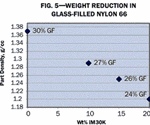










.jpg;maxWidth=300;quality=90)


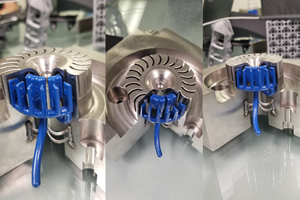
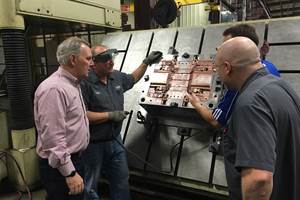
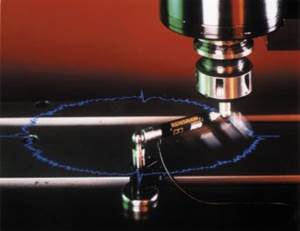
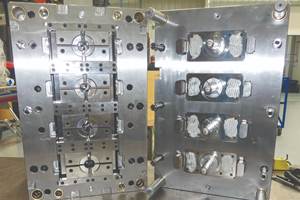
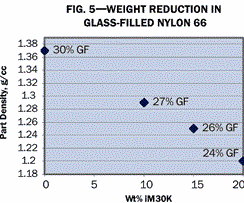


.jpg;maxWidth=970;quality=90)